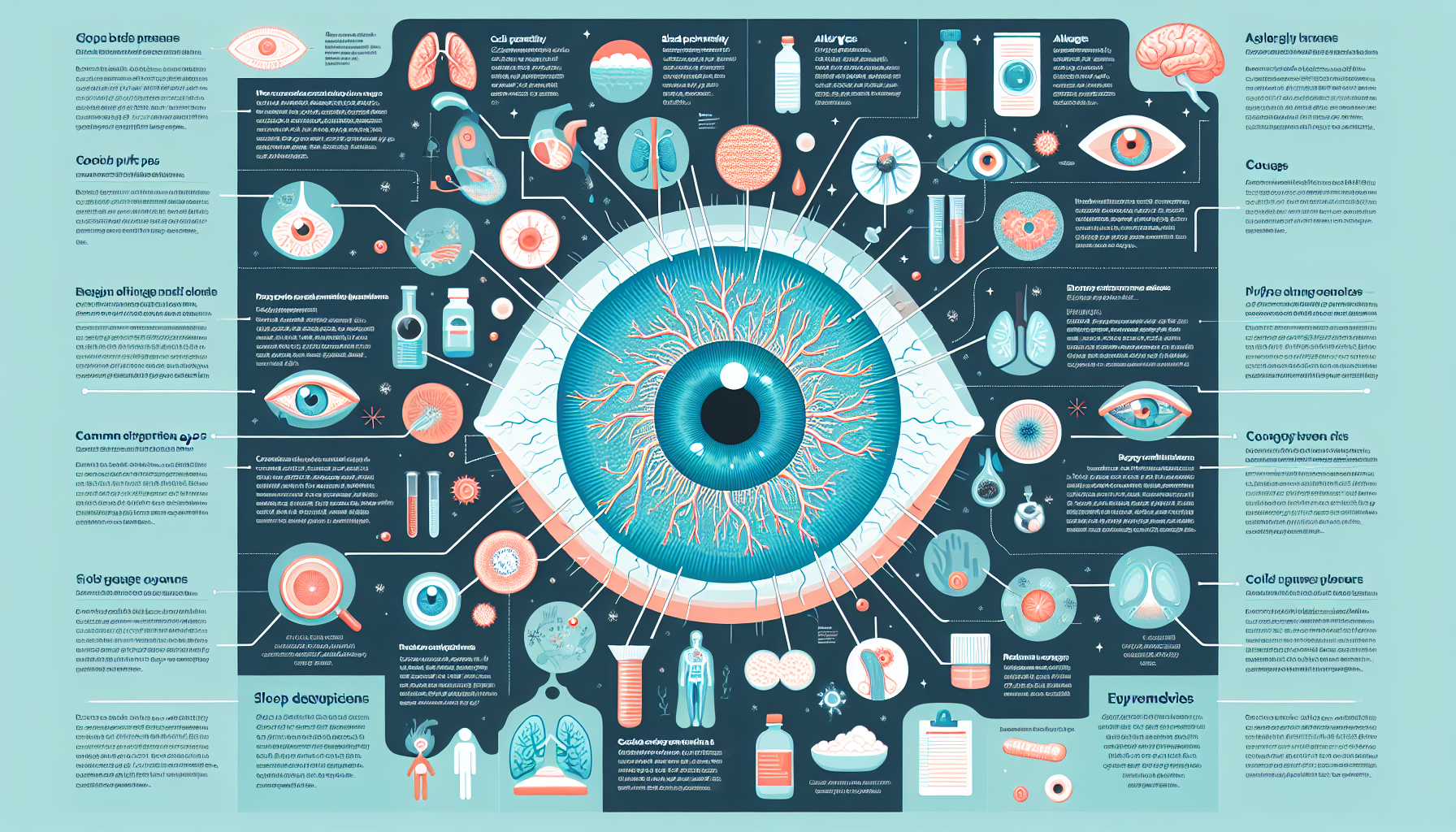Why Are Your Eyes Often Puffed Up? Understanding the Causes and Solutions
Have you ever woken up in the morning only to find your eyelids feel heavier than usual, almost like they’re carrying the weight of the world? Or maybe you’ve cried a little too much during a movie (we’ve all been there!) and ended up sporting puffy eyes for the rest of the day? Dealing with puffiness around your eyes is surprisingly common, and it often has various underlying causes that may point to health issues too. Let’s dive into why those adorable peepers can often look less than vibrant.
1. Lack of Sleep
Ever notice that your eyes look like they’ve partied a little too hard after a night of tossing and turning? According to Dr. Anar Mikailov, co-founder of Skintensive and a dermatologist, "Sleep deprivation increases certain hormones that lead to fluid retention." When you don't get enough Z's, your body struggles to clear out toxins, leading to unsightly puffiness. Prioritizing quality sleep is crucial—not just for your eyes, but for your overall health. Aim for 7-9 hours each night to help your body detox and keep those under-eye bags at bay.
2. Sleep Position
Believe it or not, the way you sleep can also wreak havoc on the appearance of your eyes. If you’re a face-down sleeper, you may be inadvertently pushing fluids toward your eyelids. "Sleeping on your stomach causes fluid to accumulate around your eyes," Mikailov notes. Elevating your head with an extra pillow can promote drainage and help prevent this swelling. Gravity can be a friend here!
3. Hormones
Ladies, this one's for you! If you're experiencing puffiness right before your period, it might be due to hormonal changes. Dr. Mikailov explains that increased progesterone levels during your menstrual cycle can lead to fluid retention. If this sounds familiar, it might be time to consider managing symptoms with diet or regular exercise to mitigate the effects of hormone fluctuations.
4. Allergies
Are you finding yourself sneezing more this spring? Seasonal allergies can lead to puffy, itchy eyes, thanks to histamines flooding your system. Dr. Mikailov shares that "increased histamine levels trigger inflammation and swelling, particularly noticeable on the face." If you suspect allergies are the culprit, consider over-the-counter antihistamines or consult with a healthcare provider for a tailored solution.
5. Dehydration
It might seem counterintuitive, but not drinking enough water can actually cause your body to retain fluids, leading to puffiness. When your body is short on hydration, it clings desperately to every drop. To fight this, drink plenty of water and consider incorporating foods with high water content, like cucumbers and watermelon, into your diet. Your body (and eyes) will thank you!
6. Tears and Emotions
Ever notice how tears seem to come with an extra dose of puffy eyes? Crying not only brings out emotions but can cause your eye area to swell temporarily. Explains Dr. Mikailov, "Tears can irritate the tissue around your eyes, leading to swelling." If the tears keep flowing, a cold compress or gentle tapping around the area can help reduce inflammation.
Takeaway
Puffy eyes can be a daily nuisance, but understanding the causes can empower you to take action. Whether it’s improving your sleep habits or managing allergies, there are several practical steps you can take to ensure those windows to your soul look bright and refreshed. If puffiness persists or becomes severe, don’t hesitate to reach out to a healthcare provider to rule out any underlying conditions. After all, health is beauty!
By keeping these insights in mind, you can embrace your beautiful, bright eyes each morning. So, which of these factors might be affecting you? Time to investigate!
